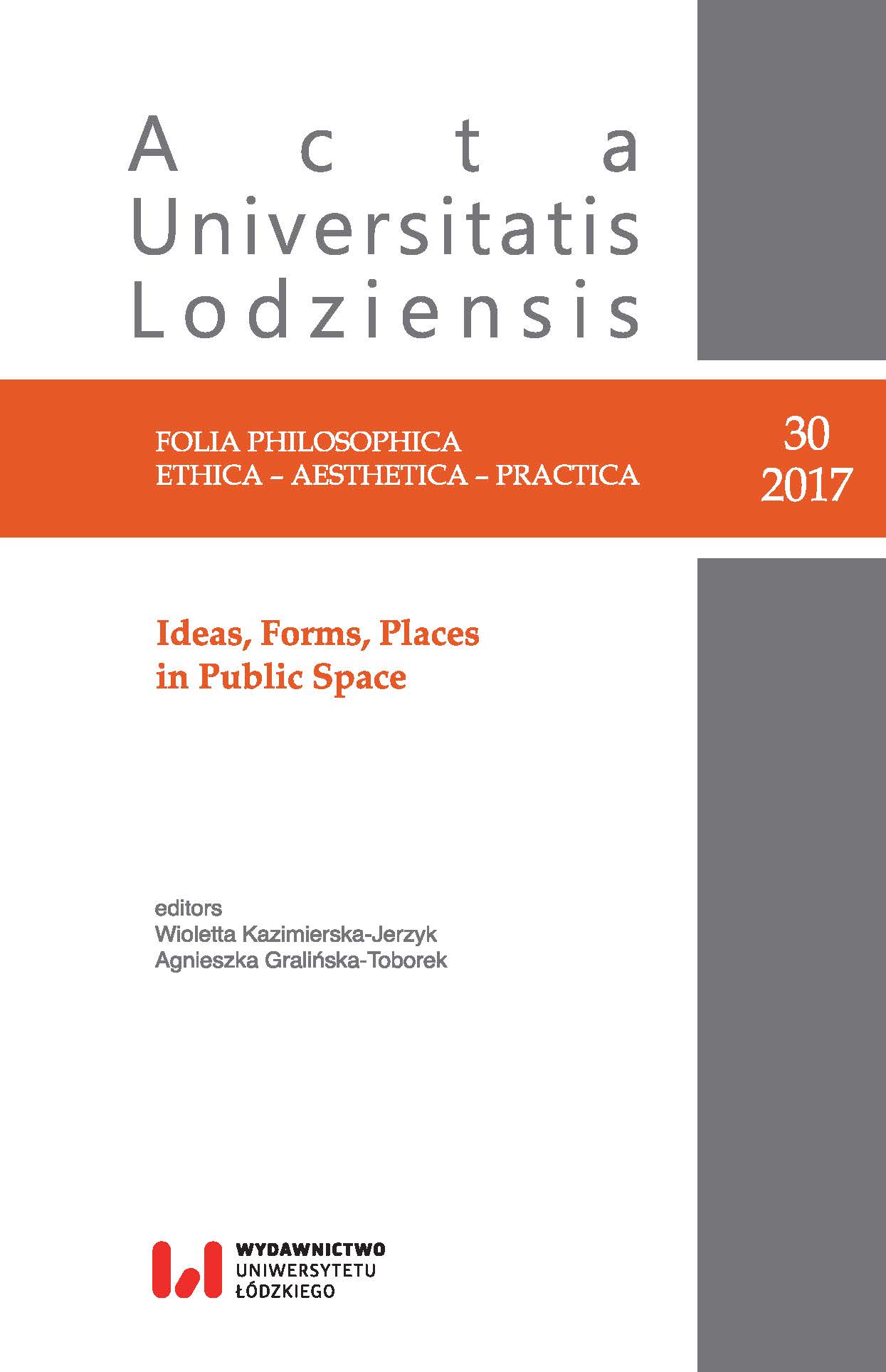Sleep in the City. Private Experience of Beauty and Its Urban Implications
DOI:
https://doi.org/10.18778/0208-6107.30.09Słowa kluczowe:
Hannah Arendt, Jonathan Crary, Friedrich Schiller, late capitalism, 24/7 world, private and public spheres, experience, repetition, urban space, street art., end of sleepAbstrakt
In my paper I try to trace and understand the reasons for the birth of the 24/7 world as it is described by Johnatan Crary in his book 24/7 Late Capitalism and the Ends of Sleep. He proposes a grim vision of late capitalism in which sleep deprivation and the disintegration of public and private spaces will become a market necessity. My attempt to understand is supported on two other authors. First, Hannah Arendt provided me with an analysis of origins, transformations and somewhat present version of the relation of private and public spheres. Second, Fredrich Schiller delivered an interesting theory on the aesthetic ideal, art, beauty and human experience of beauty. These three analyzes stand as basis for my attempt to present a proposal to overcome the crisis described by Crary and the answer is related to the issue of aesthetic experience of street art in urban space.
Bibliografia
Adorno, Theodor W. and Horkheimer, Max. Dialectic of Enlightenment: Philosophical Fragments. Stanford: Stanford University Press 2002.
Google Scholar
Arendt, Hannah. The Human Condition. Chicago: University of Chicago 1998.
Google Scholar
Chmielewska, Katarzyna. “Podmiot jako utopia estetyczna ‘Listy o estetycznym wychowaniu człowieka’ Friedricha Schillera a ‘Dziennik’ Witolda Gombrowicza,” Pamiętnik Literacki XCV (2004), 7–20.
Google Scholar
Crary, Jonathan. 24/7: Late Capitalism and the Ends of Sleep. London: Verso 2013.
Google Scholar
Jay, Martin. Songs of experience: modern American and European variations on a universal theme. Berkeley and Los Angeles: University of California Press 2005.
Google Scholar
Pańkow, Marcin. Hegel i pozór. Źródła i przedmiot dialektyki spekulatywnej. Warszawa: PWN 2014.
Google Scholar
Prokopiuk, Jerzy. “Utopia i profecja, czyli dwie dusze Fryderyka Schillera.” In Schiller, Fredrich. Listy o estetycznym wychowaniu człowieka i inne rozprawy. Translated by Irena Krońska and Jerzy Prokopiuk. Warszawa: Czytelnik 1972.
Google Scholar
Schiller, Friedrich. “What is, and to what end do we study, Universal History?” In Friedrich Schiller, Poet of Freedom. Vol. II, edited by Helga Zepp LaRouche. Washington, D. C.: Schiller Institute 1988.
Google Scholar
Schiller, Friedrich. Aesthetical and Philosophical Essays. Vol. I. Boston: Francis A. Niccolls & Co. 1902.
Google Scholar
Wertz, William F. Jr. “A Reader's Guide to Schiller's ‘Letters on the Aesthetical Education of Man’.” Fidelio vol. 14, no. 1–2, Spring–Summer (2005), 80–104.
Google Scholar
Pobrania
Opublikowane
Jak cytować
Numer
Dział
Licencja

Utwór dostępny jest na licencji Creative Commons Uznanie autorstwa – Użycie niekomercyjne – Bez utworów zależnych 4.0 Międzynarodowe.












